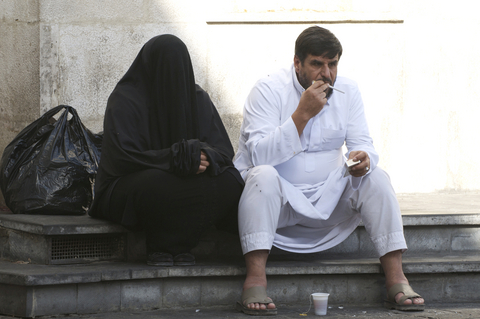Baad
by Salma
Fatima was playing with her friend and cousin in her
grandfather’s lovely flower-covered garden.
As she caught sight of many older villagers entering the house, she
thought that her father must be throwing a party. She had no idea that her family was busy making
the most important decision of her young life.
At just 14 years old, Fatima was a very pretty and innocent
girl with beautiful eyes. What Fatima
did not know was that her brother had ruined her life. He had killed a neighbor’s son, and Fatima
would pay the price. The villagers had
decided Fatima would have to marry Jan Mohammed, a man who was thirty years
older. She was to pay for the price of
baad, an Afghan tribal tradition that involved giving a victim’s family a
member-usually a girl-of the offending family.
When Fatima’s family told her the news, she cried a
lot. She knew she was a victim of her
brother’s crime and she did not have a choice.
If she refused to marry Jan Mohammed, then her brother or other family
member would be killed. This would
continue until all were killed. Fatima
hoped she would get lucky. Sometimes in
the case of baad, in-laws can be nice.
Most of the time, though, new brides were treated as servants.
On her wedding day, despite the fact that Fatima was a
beautiful bride, she was sad and worried about her future. But to her surprise, Fatima found Jan
Muhammad’s family was very nice to her. Jan Muhammad was smitten by Fatima’s
beauty and fell in love with her. Soon
Fatima returned Jan Muhammad’s feelings and fell in love with him too. After a
year of marriage, a baby was born. Fatima’s
new family was very happy that they had their first grandson. They named him Ahmad. Ahmad was as handsome as Fatima was
beautiful.
But Fatima’s happiness with her new baby and family was to
be interrupted. One night in a bombing,
Fatima lost her family-her brother, sister, father and mother all died. What saved her from complete sadness was
Ahmad, watching him grow and learn new things day by day. Ahmad kept her busy.
When Ahmad was three years old, Fatima’s second child Lila
was born. Lila had beautiful blue eyes
and blond curly hair. Fatima’s sadness
over the loss of her family receded as she was loved by her children and
husband.
One day during the time of the Taliban, Jan Muhammad left
the house for his work. That was the
last day of his life. The Taliban killed him.
Fatima cried with her in-laws at the loss of her husband and
their son. But her in-laws were so upset
they told Fatima this was her fault. She
was bad luck. She had married their son
because they had lost another son. They
told Fatima that she was in their house because of baad. So they told Fatima they never wanted to see
her again. She was to leave with her
children and never return.
Fatima was a 19-year-old woman with a five-year-old son and
a year-old daughter. She had no place to
go. She went to her uncle’s house and
asked him for help. Her uncle took her
in, but Fatima soon found out he had plans for her.
Fatima’s uncle found a man who would buy Fatima but not her
children, because he did not want his family to know that Fatima had previously
married and her children were not part of the deal, Fatima fell into a deep
depression. She begged and pleaded with her uncle. She did not want to be married again. She could not live without her children. But her uncle had taken the money and did not
want to give it back.
Twice, Fatima tried to kill herself, but did not succeed
either time.
As Fatima’s desolation deepened, her uncle’s family held
many discussions and decided that they would adopt Ahmad. This was a monetary decision. In two years, Ahmad would be seven years old
and would be able to work on the street and make money for them.
But no one wanted Lila. She was a girl and considered
useless, too young to work and too young to sell for marriage.
Finally Lila was sold to someone from a European country as
an adoption. As Fatima was separated from
her children, she cried and screamed. No
one listened to her voice.
Pabot, Susannah E., comp. T
he Sky Is a Nest of Swallows. First ed. Belleville, 2012.
Afghan Women Writer's Project:
http://awwproject.org/
Also available on Amazon
You are reading: One Million Girls, please help support the blog by Following-
www.milliongirls.blogspot.com
You may also follow the Facebook page at
www.facebook.com/100milliongirls
I post information and articles about women and children around the world almost daily on the FB page.
Find me on Twitter @100milliongirls
I also have a poetry blog, Poet on Poetry,
www.poetonpoetry.com







